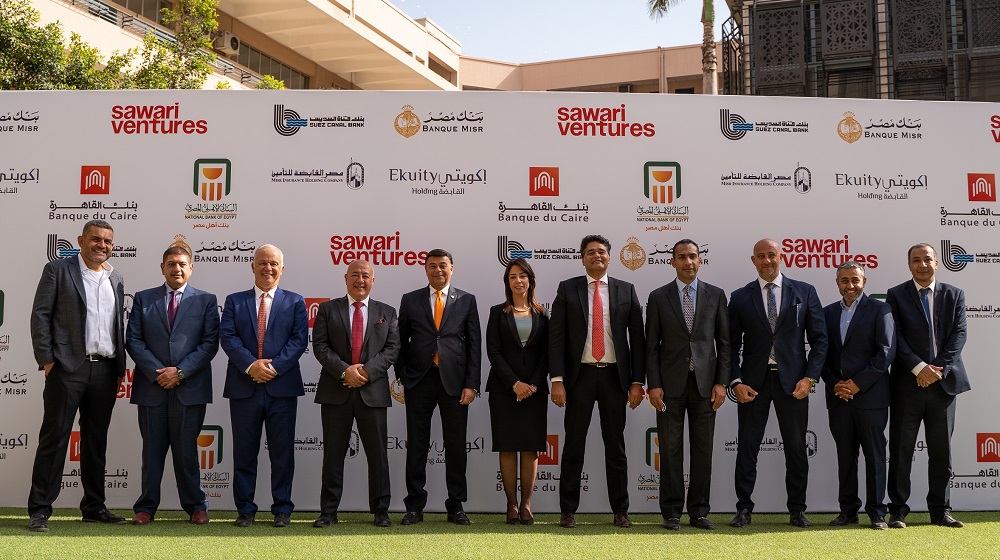Sawari Ventures, a leading investment firm, is gearing up to introduce a new fund aimed at amassing $150 million to propel Egyptian startups forward. Hani Al Sanbati, the CEO and co-founder, highlighted the firm’s intention to invest across a variety of sectors, including fintech, education, healthcare, green technology, and deep tech initiatives, forecasting significant growth in these areas within Egypt.
In a press release, Al Sanbati shared his optimism about the economic environment, suggesting that it favors ongoing investments in tech enterprises. He pointed out that while startups may encounter initial obstacles, these are not likely to derail their growth in the long run.
Estimates suggest that Egyptian startups receiving support from Sawari Ventures are poised to secure investments totaling between $350 million and $500 million in the coming five years. Al Sanbati accentuated Sawari’s ambition for Egypt to emerge as a central investment hub in Africa and beyond, drawing attention to the firm’s success in funding approximately 500 startups across the Arab world since its inception.
Al Sanbati detailed Sawari Ventures’ strategic approach to spurring investments and preparing companies for subsequent funding rounds, emphasizing the firm’s dedication to nurturing innovation and entrepreneurship across the region.

Al Sanbati mentioned, “Exit strategies are a critical component of our approach to reinvest in new ventures,” highlighting ongoing talks about possibly divesting from some companies within the next eighteen months, assuming these businesses continue to attract growth capital from new investors.
Approximately 35 percent of Sawari Ventures’ investment portfolio focuses on the fintech sector, with the goal of revolutionizing the Egyptian economy and advancing financial inclusion trends.
Established in Egypt in 2010, Sawari Ventures has emerged as a leading venture capital firm, backing over 30 enterprises, such as Swvl, MoneyFellows, Instabug, Si-Ware, and Elves.
Despite the African funding slump, Egypt emerges as a bright spot.
In January 2024, African startups saw a significant funding downturn compared to the same month last year, with an 84.8 percent year-on-year decline from $545.1 million to $83 million, as reported by Africa: The Big Deal. Yet, when removing a single large deal from 2023 from the comparison, the fall is much less drastic at 16.2 percent. This suggests that, despite a global funding slowdown, the African tech ecosystem continues to exhibit stable growth at its core.
The sectors that attracted the most investment in January 2024 were agritech ($26.3 million), cleantech ($18.1 million), and health tech ($13.5 million). In contrast, fintech and several other sectors saw a decrease in funding, reflecting the broader global investor tendency to back more established startups with solid performance histories in times of economic uncertainty.
Interestingly, three of the four logistics startups that received funding in January—Bosta, FriendlyM, and Roboost—are based in North Africa, with a particular focus on Egypt. This aligns with the recent profitability of Egyptian mobility startup Swvl in 2023, after enduring years of losses, suggesting a possible uptick in investor interest in Egypt’s logistics sector in the forthcoming period.
Amid the funding slowdown, January 2024 still saw both new and seasoned investors reinforcing their support for the African tech landscape. The European Investment Bank (EIB) committed $30 million to Seedstars, with a focus on supporting ventures in francophone Africa, while the African Development Bank (AfDB) allocated an additional $10.5 million.
Prominent figures such as Iyin Aboyeji and Mia von Koschitzky-Kimani unveiled Accelerate Africa, a Nigerian accelerator designed to nurture early-stage startups. In Egypt, the launch of T-vencubator marked the arrival of a novel entity combining a venture capital firm with an incubator. This hybrid aims to back promising Egyptian startups, offering a distinctive model that promises to deliver crucial support to early-stage companies in the nation.












